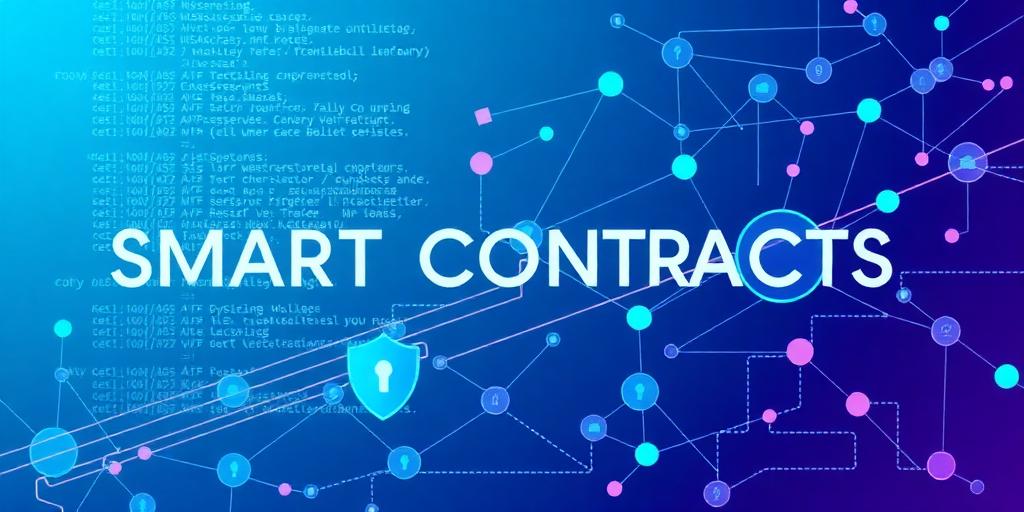The Indispensable Role of Smart Contracts in Blockchain Technology
Blockchain technology has undeniably ushered in a new era of decentralized trust and transparency. While often associated primarily with cryptocurrencies, its true transformative power lies in its broader applications, chief among them being smart contracts. These self-executing, tamper-proof agreements are not merely a feature of blockchain; they are fundamental to its evolution, enabling a vast array of automated and trustless interactions across numerous industries.
Defining Smart Contracts: Code as Law
At their core, smart contracts are digital protocols designed to automatically execute, control, or document legally relevant events and actions according to the terms of a contract or an agreement. Unlike traditional contracts that rely on legal systems and human intermediaries for enforcement, smart contracts are stored and executed on a blockchain, making them immutable, transparent, and resistant to censorship. The phrase "code is law" succinctly captures their essence: once the predefined conditions are met, the agreement automatically self-executes without any human intervention.
This paradigm shift was first conceptualized by computer scientist Nick Szabo in 1994, envisioning a "self-executing contractual state." However, it was the advent of platforms like Ethereum that truly brought smart contracts to the forefront, providing a robust, Turing-complete blockchain environment capable of hosting complex programmatic logic.
How Smart Contracts Function on the Blockchain
The operational mechanics of smart contracts are intrinsically linked to the underlying blockchain architecture. When a smart contract is deployed, its code and data are recorded on the blockchain. This makes it visible to all participants on the network (though the data itself can be encrypted or tokenized if privacy is required). Once activated, typically by a transaction that meets its pre-programmed conditions, the contract’s code is executed by every node on the network, ensuring consensus and validating the outcome.
Key characteristics of smart contracts include:
- Self-Executing: Agreements are automatically enforced when conditions are met.
- Tamper-Proof: Once deployed, the contract's code cannot be altered, ensuring integrity.
- Transparent: All participants can view the terms and execution history of the contract.
- Decentralized: They operate without a central authority, distributing control and reducing single points of failure.
- Immutable: Records of transactions and contract execution are permanently stored on the blockchain.
Transformative Applications Across Industries
The utility of smart contracts extends far beyond simple cryptocurrency transactions, offering significant advantages in efficiency, security, and cost reduction. Their capacity to facilitate decentralized agreements and automated processes makes them invaluable across diverse sectors:
- Decentralized Finance (DeFi): Smart contracts underpin the entire DeFi ecosystem, enabling lending, borrowing, decentralized exchanges (DEXs), and stablecoins without traditional financial intermediaries.
- Supply Chain Management: They can automate payments upon delivery, verify product authenticity, and track goods in real-time, improving transparency and reducing fraud.
- Real Estate: Automating property transfers, escrow services, and fractional ownership through tokenization, streamlining complex transactions.
- Healthcare: Securing patient records, managing clinical trials, and automating insurance claims with enhanced privacy and auditability.
- Governance: Facilitating transparent and verifiable voting systems for Decentralized Autonomous Organizations (DAOs) and even traditional elections.
- Intellectual Property: Automating royalty payments and tracking usage rights for artists and creators.
The Future Trajectory of Decentralized Agreements
While smart contracts offer profound advantages, challenges remain, including the complexity of coding secure contracts, regulatory uncertainty, and the difficulty of integrating with off-chain data. However, ongoing innovations, such as oracle services that provide external data to smart contracts, and advancements in interoperability between different blockchain networks, are rapidly addressing these limitations.
The future of smart contracts points towards more sophisticated, versatile, and interconnected applications. As blockchain technology matures, these automated agreements are poised to become the bedrock of a new digital economy, facilitating trustless interactions at an unprecedented scale. They represent a fundamental shift in how agreements are conceived, executed, and enforced, paving the way for truly decentralized and efficient systems.




